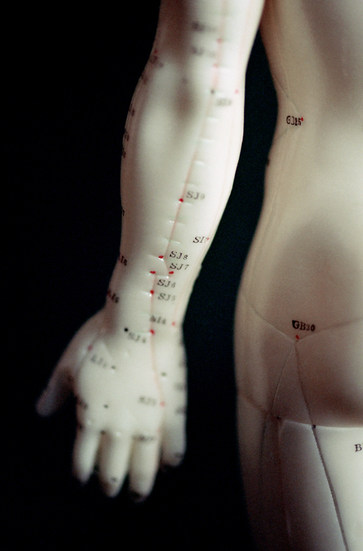The vast majority of ‘raves’ have drugs circulating about. A lot more than Tylenol.
Rave drugs can affect the brain in profound ways, producing euphoria and psychedelic experiences that modern rave-goers chase after. These drugs can be dangerous, but also hold hidden promise.
At least, that’s what researchers are saying about ketamine, or “Special K” as it’s called on the streets.
This drug has done a few important things to turn depression studies upside-down. The drug restores vital brain connections in mere hours, where the most commonly prescribed medical treatments take weeks to kick in. If they work at all.

The Ketamine Miracle
Originally, scientists and researchers thought that depression was caused by a chemical imbalance in the brain. A brain hormone called serotonin wasn’t being made enough, which prevented brain cells from communicating. The overall effect was supposed to be depression symptoms, which could be corrected by fixing the imbalance.
When researchers studied ketamine in mice, they found some very different results.
Recent studies point to brain damage being the cause of depression, and not just a serotonin imbalance. The brain cells were having communication problems not because they didn’t have the chemicals to do so, but because the connection wasn’t there at all.
Ketamine is reported to repair brain cell connections with lightning-fast speed. And while it’s not a permanent solution by any means, 7 to 10 days of relief from depression symptoms could be enough to save a life from suicide.
Before and After Ketamine
In the past clinicians recommended medications called SSRIs that increase serotonin levels.
Eventually.
If they work at all.
SSRIs take a few weeks to start having any noticeable effect in a patient. And for more than a third of depression patients, SSRIs don’t work at all.
So, why have SSRIs been successful in the past with this new information about how depression works? SSRIs also restore brain cell connections, but they do so at a much slower pace.
Ketamine can perform what’s called “synaptogenesis” incredibly rapidly. But, the drug isn’t without downsides and side-effects. Taking ketamine in its current street formulation can cause:
- dream-like states
- vivid imagery
- hallucinations
- confusion
- excitement
- and irrational behavior
Some patients who participated in ketamine drug testing found the experience unpleasant. But not everyone.
Today, scientists and researchers are taking a good, hard look at ketamine’s formulation, trying to refine and improve it for treating depression. The goal is to come up with a safer drug, with fewer symptoms, that lasts longer and acts faster.
If successful, it could change the face of depression treatment forever.
Experts Say Acupuncture Works! (to Relieve Pain)

The experts have spoken.
Only the best research has been reviewed, covering almost 18,000 patient experiences.
The final answer: acupuncture works to relieve pain. Period.
This ancient Chinese treatment technique involves carefully inserting needles into safe places in the body. The needles are painless due to careful placement and sterilized like any other surgical tool would be.
Today, more than 3 million Americans receive acupuncture treatments to help them deal with pain and other conditions. And while the research hasn’t yet shown health benefits for other conditions, the results are in for 4 unique types of pain:
- Back pain
- Osteoarthritis pain
- Chronic headaches and migraines
- Shoulder pain
How We Know Acupuncture Works
The biggest criticism of acupuncture is the Placebo effect. People want the treatment to work so badly that they convince themselves that it works. Pain actually lessens with the Placebo effect, but it does so only because the mind is very powerful.
So, researchers got a little tricky.
In tests, they had 3 groups. One group received typical medical care for pain relief. Another group received acupuncture. And the third group received “fake” acupuncture administered with retractable needles.
Here’s what happened.
- Those who experienced traditional pain care had their pain decrease by about 30%.
- Those who received “fake” acupuncture had their pain drop off by 43%.
- Those who received real acupuncture had their pain drop off by 50%.
Acupuncture proved itself and came out the victor. It reduced pain pretty well equally for all pain types looked at.
Should You Go and Get Acupuncture?
Even though the study found enough evidence to say that acupuncture is good enough to be used as a pain treatment, they also found that it didn’t work for everybody. And it didn’t work for everybody in the same way either.
The experts recommend trying it, if you would like to keep your mind open to what they call “interdisciplinary” pain management. There is more than one way to relieve pain, from getting enough exercise, to acupuncture, to good, old-fashioned Tylenol.
Unfortunately for most Americans, acupuncture is usually not covered by insurance. If you’d like to try this ancient Chinese remedy, you’ll most likely have to pay out-of-pocket.
How much does it cost? Acupuncture practitioners don’t fall under the same jurisdiction as other healthcare providers. And that means pricing can vary widely. There is no consensus as to how much a fair rate is. Experts suggest getting a recommendation from your doctor, or shopping around a little. The highest price won’t always mean the best quality-of-service.
When it comes down to it, acupuncture might be worth trying for a great many people.
Pain relief is pain relief, no matter how it happens.


